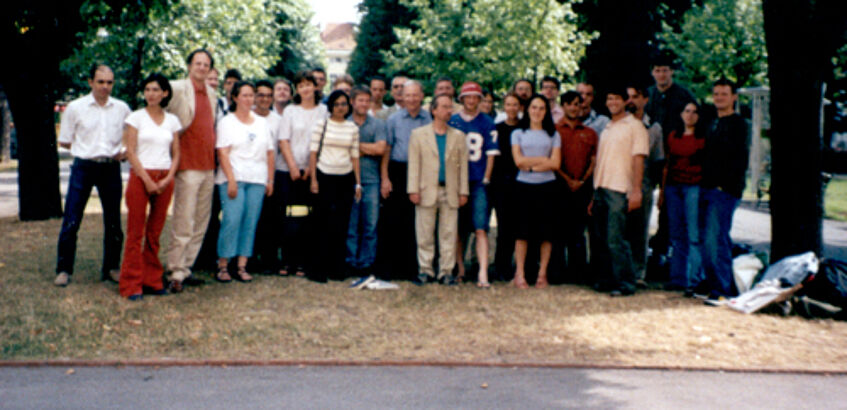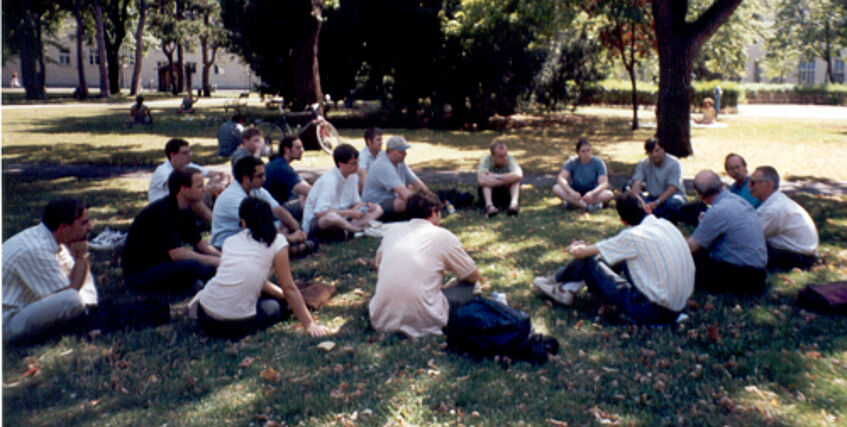USS-SWC 2003 – Biological and Cosmological Evolution
The 3rd Vienna Summer University was held on 14–27 July 2003.
Lecturers
- Karl Sigmund University of Vienna, Austria)
- Robert M. Wald (University of Chicago, USA)
- Eörs Szathmáry (Eötvös Loránd University, Hungary)
- Assistant Lecturer: Daniel Holz (University of California, Santa Barbara, USA)
Our world is not static, as was the prevailing view in past ages - but dynamic. It evolves. This holds for the large-scale structures in the universe as well as for the biomolecules. The Summer University 2003 was devoted to the major scientific aspects of cosmological and biological evolution, the key ideas of which originated in the early decades of the previous century.
The theory of general relativity revolutionized our view of the nature of space, time, and gravitation; and the neo-Darwinian synthesis merged genetics with the theory of natural selection. Both fields progressed enormously during the past forty years: the "big bang" theory was dramatically confirmed by the discovery of the cosmic microwave background radiation, and evolutionary biology linked up with genomics. Yet we still do not know the answer to some very basic questions concerning, for instance, the origin of life or the origin and ultimate fate of the universe.
The lectures on cosmological evolution explained the basic nature of general relativity, described its implications for cosmology, and addressed recent developments in theoretical and observational cosmology. The lectures on biological evolution concentrated on the major transitions, in particular prebiotic evolution, the origins of multicellularity, the role of sex and the emergence of social structures. Topics included the principles of population genetics and ecological modelling, random drift and selection, competition and cooperation, and applications of game theory to population dynamics.

